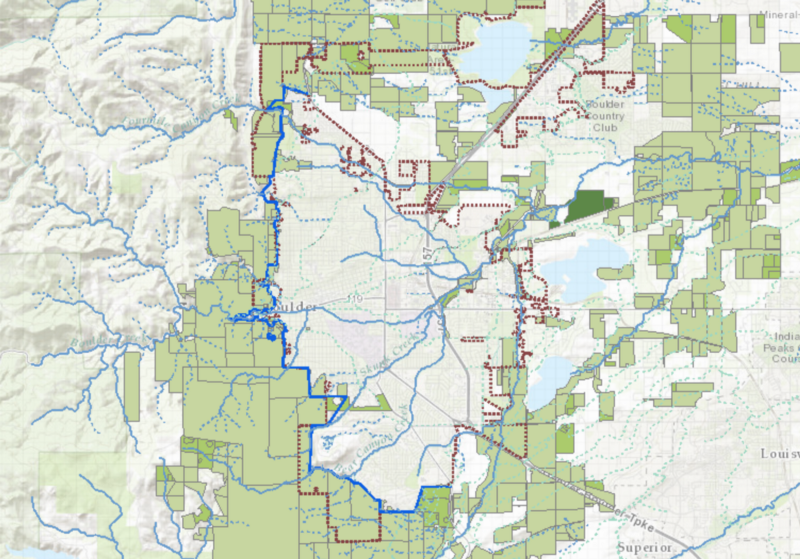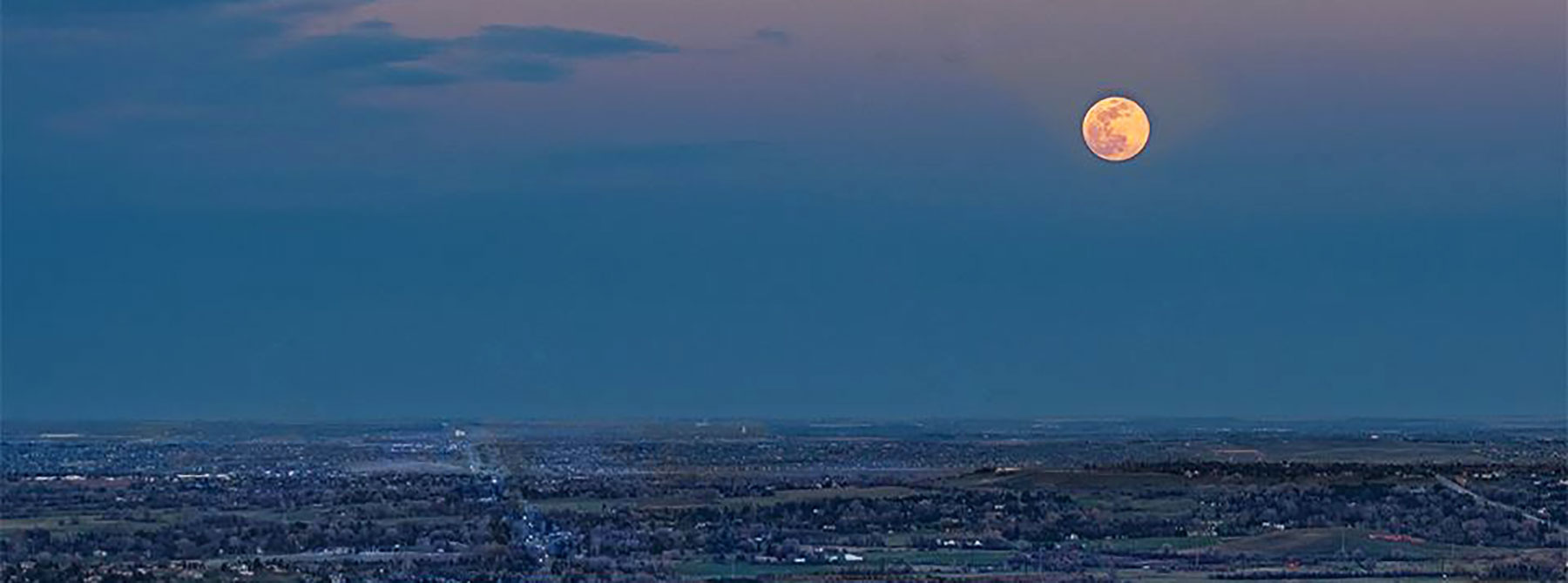Open space, perhaps Boulder’s most beloved and valuable resource, is also a tricky issue, the Flatiron-shaped place at which many other hot-button issues intersect, namely affordable housing, sustainable development, slow growth and community equity.
It started with Boulder’s “Wild Idea,” Boulder residents’ landmark decision over 50 years ago to tax themselves to support open space and fund the city’s Open Space and Mountain Parks department, which now owns and manages over 45,000 acres.

Boulder-owned open space surrounds the city. The “Blue line” (to the left) marks the limit of city-provided water services, which prevents buildings creeping up the mountains west of town. Seventeen irrigation ditches, and several creeks, crisscross the town. Source: Boulder city eMapLink.
Now open space relates to the two city of Boulder ballot issues that voters will vote on this November 5 election: a 20-year extension of an existing 0.15 cent city sales and use tax to support open space and to purchase a conservation easement at 25-acre inner-Boulder farm Long’s Gardens, and middle-income housing assistance (more on the latter in a later post).
Long’s Gardens: Central Boulder’s century-old, 25-acre family farm faces uncertain future
Many Boulderites feel the deep need and responsibility to protect existing open space, and even grow it, so later generations can cherish this place as we do. But this desire can conflict with smart growth and affordable housing, as there is only so much space in Boulder. Open space is Boulder’s greatest asset and, it appears, its greatest challenge.
Voters will elect six city council members this fall from among 14 candidates.

Six showed up at an open space council event at the A-Lodge on Wednesday night: Benita Duran, Aaron Brockett, Bob Yates, Junie Joseph, Mark McIntyre, and Rachel Friend.
What the candidates think
The general consensus between all of the candidates in their own ways was that a clear channel of communication need be established, from hearing from residents what they need, and, conversely, clearly communicate the motives, mandates and decisions the city council has around the issues it faces and the decisions it makes. This includes open space, of course.
Boulder’s activist organizations and their city council endorsements
Aaron Brockett and Bob Yates, as incumbent candidates and four years of experience on council, felt that residents often misunderstand council’s intentions as a governing body. New ideas and proposals sometimes scare residents who are comfortable with the status quo. Fear stalls progress, and city council is often left again and again reeducating people on their goals, projects, truths.
Candidate Junie Joseph said the barriers to open space are real, which is why she’s interested in improving Boulder’s inclusivity as a whole. Many agree, but to implement that requires overcoming some formidable challenges. Open space is not a standalone issue; it necessarily involves housing and transportation.
The next council will have to continue grappling with this thorny scenario and we’ll begin pulling the reporting threads to help foster an intelligent, productive conversation.
Additional reporting by BLDRfly reporter Taty Sharpton.



